|
It's Earth Day! So time to think about how we use materials in our daily life, and if we should be recycling more, and like lol what is plastic is there really a trash island. Also time to think about how we use materials in our jobs - and my job is usually building sets for theatre - and how wasteful we are sometimes. Let's talk about sets, baby. Thinking large scale, here's what Broadway does: http://www.broadwaygreen.com They have their own organization that helps encourage greening sets and recycling used production materials, of course! All sorts of resources are listed for Broadway shows to recycle or donate their used materials, from fabric shops to Freecycle to the trucking and disposal companies that do the best job of separating out recyclable waste. One of their committees even "established a pilot program for recycling gels from Broadway shows to regional and off-Broadway theatres" (which I'm sure Rosco and Lee aren't too happy about..) But, hey, thanks Great Green Way. If Broadway is the hub of the theatre industry (it is), Broadway Green Alliance is the hub for the greening of the theatre industry, even hosting a competition for "Green Captains" on college campuses nationwide. Their challenge for these captains is this: designing theatrical productions in a greener manner (e.g. alternate materials, energy, lighting, costumes or set pieces); running the show in a greener manner (e.g. energy-efficient lighting, rechargeable batteries, or educating the cast and crew about better practices); striking the production in a way that reduces waste (e.g. re-use, recycling, or composting); or changing front-of-house operations to reduce waste and encourage greener audience practices (e.g. alternative advertising, programs, or tickets). Nice ideas. And yet...
Most of the resources BGA lists are NYC-based or helpful for national tour tranpsortation. That all makes sense. But theatre is a large industry in at least a few other cities across the nation, so I guess it's up to artists and administrators in those cities to mimic BGA with their own types of resource/education/awareness organizations. Because every production is a little different, I'd say the hardest part of taking steps to be green in the industry is building and striking with an eye toward reducing waste. I don't have a statistically significant n of productions to make projections on how much material is trashed on each set that's built in Boston each season, but let's examine real-world case studies of two shows: A small/midsize company with limited storage space. Can't save much because there's no space. Save the hardware and the high-cost items (doors!) and sheet goods (masonite that isn't too f'd up, 3/4" plywood). According to the dump scale, about 620 pounds (and close to 50% of the direct material cost for scenic) of lumber and fabric into landfill. While I feel solid about the amount of material I borrowed from sources for the production that goes back into other uses (maybe 30%), a lot of dumped material may have been reused...if I had built it to be salvaged. However, I built it to look good aesthetically and get done fast (read as, save labor money; the difference here would have been using screws versus gluing and stapling the double-sided flats). Fringe company. Enough storage space for the size of the set! We ruined the stock walls they had with a bunch of homasote and really textured paint treatment to look like cinderblock. There's no coming back from that - all that lumber is trashed. But, hey, that wall looked AWESOME. Just think: those instances done for 3-6 productions per season, multiplied by the 175 member organizations of StageSource (they claim 250, lets assume 70% actually produce regularly). As we say too often at brunch in the South End, "woof" - and not in the good way. The designer's vision sets the bar to which technical directors can get creative with green practices and materials. In consumer product engineering, there's a shift in focus to designing the life-cycle of the product. That is, not just designing the product with considerations of its use, but also considering its post-use life. When your iPhone is obsolete, what happens to its parts? Believe it or not, Apple's engineers spend time analyzing the economic and environmental impact of their products' end-of-life, part by part. (https://www.apple.com/hk/en/environment/answers/). This process is really creatively called life-cycle engineering. Similarly, designers should focus on designing the life-cycle of their set, including it's death. Great...but how? If you want a bunch of slightly peeling wallpaper on the walls of the house in 'Night, Mother, you're gonna put the wallpaper on the walls. You wouldn't sacrifice that brilliant idea of yours for the planet's sake, right? Well... As in a previous bit in which I rambled about Cost vs. Artistic Integrity, here the problem statement just gets another variable. If you're minimizing cost, maximizing ART and also maximizing "green," your optimization problem becomes even more complex. While at least "green" is a quantifiable numerical value, it too butts heads with ART. While aesthetically some designs will fit with a recycled aesthetic (here's an American Theatre magazine piece mentioning a projection screen made of recycled pillowcases at the tail end of the article), some don't. O.P.C. at ART was all recycled but, uh, also specifically about consumption and ecological destruction. It fit the driving idea of the show. I could scavenge a bunch of recycled bedsheets the next time a designer needs me to mask a 180 square foot area below a platform...but that would look a little silly up against the rest of Shockheaded Peter's aesthetic, for example. How to be as green as possible and not sacrifice the artistic goal? If we quantify ART, we can set its constraints numerically and make it work in an optimization problem with our green and cost variables. Well, we can always dream... 'til then we will just have to use heuristics and decide which variable we want to trade off for each production.
0 Comments
I spent the last 5 days on Martha's Vineyard supporting an art festival called Consenses. I stayed in a house with 8 of Boston's strongest artists including 3 of its most prolific scenic designers, the head of the United Scenic Artists' Boston admission committee, a UMass Boston professor, an Emerson professor, the Tufts PM, and the Northeastern TD.
All of this not to brag but to say I was in an environment of a lot of people who were "making it" in this industry. Though I'm always the outlier with my non-theatre degree and the "you're HOW young?" questions, I still felt at home with these people. As I was describing my path and my current "what's after graduation" crisis, the Emerson professor said "don't ask 'what should I do,' ask 'what's important to me.'". Which is of course logical and I've probably read it and heard it a thousand times, but it finally struck me when she said it. Theatre isn't necessarily important to me. That's weird to say. While theatre is a crucial part of my life, and the stories told in theatre are sometimes important and oftentimes great fun, and I love working in theatre...I guess it isn't necessarily important. Education is important to me. Education solves huge world issues. I find educational policy fascinating and teaching itself even moreso. Having a lot of money is important to me. It just is. It always has been. That will not stop in the forseeable future. Even though this week was spiritually renewing, I am hungry right now and I don't have money to eat and that makes my 4 years of struggling through industrial engineering classes very, very angry with me. I want to teach and I want to be affluent. Still an oxymoronic mission statement, but maybe a slightly more achievable than "I want to stage manage and be affluent." There is one cue I missed in this opening number... can you find it? Building this set that will tour for Brown Box Theatre Project's production of the Scottish play.
Back when Kyler Taustin (director/designer) first gave me an idea of what he wanted (hi Kyler), he talked a lot about the set feeling distressed and worn down. One big idea was pallets being setup as walls upstage. Super cool, and cheap, and recyclable. Go green theatre. He also wanted these sittables in the style of those kind of benches that like circle a tree in people's backyard? Like this. So I go to the lumber yard to buy some 1 by 6 rough cut planks to make the seat part out of and 2by4 to do legs, framing, etc. And as I drive up to the lumber yard and also am thinking about the pallet walls, I'm like...pallets...planks...naturally distressed rough cut wood. AHA And so you have these sittables which cost in total $28. and there's six of them and you can make benches or semicircles or full circles. If you wanna see the rest of the set you'll just have to see the show... So, some might know the last 6 months were a calculated, pre-meditated, totally un-scientific experiment in the world of Kevin's life. The hypothesis was "Kevin will spend full-time being a theatre artist (as in all previous time periods, he has either worked a 'real' co-op or been a full-time student in addition to the artistry) and will hate being poor."
The hypothesis was proven true! Kevin was paid very little to do a lot of things. However, he was paid, and so few theatre artists can say that. For that, he is very grateful for everyone who thought him worthy to be paid for his work. Despite being poor ...though not truly poor, because, you know, his parents made sure he had a phone and car insurance and health insurance and triple A and bailed him out so his bank account wasn't negative a few times (probably some other things too that he's forgetting - though not housing and food, that was Northeastern - thanks Northeastern). Kevin may have been able to pay for the items his parents cover, if he didn't drink and eat Chipotle so much. But he does. Part of the experiment was not changing his luxurious lifestyle, so he could really see what it would cost to live like he wants (answer: it costs a GE salary). OKAY ANYWAY as with all experiences in life, Kevin learned many things. Here are some of the things Kevin learned during the Experiment: 1) Kevin loves working with kids. He sort of already knew that, but having time to substitute teach and work with Boston Children's Theatre reaffirmed that. Kevin thinks he might want to spend more time teaching in the future. 2) Kevin loves working in theatre primarily because he loves working with artists. Any job you do has terrible tasks that are part of it. Kevin worked at Brigham's for 3 years and the tasks were horrible, but the people were the best co-workers. If you're working with the right people (and theatre people are very rarely the wrong people), any job can become loveable. (Hello, and welcome to a 22-year old's career advice column. You can all tell me to shut up, I'll take it.) 3) Theatre sometimes (a lot of times) keeps you away from your family and friends who work in other fields. And most of the time, those people don't understand and think you're being a jerk because you just keep saying your busy. 'HOW COULD YOU POSSIBLY STILL BE BUSY. WHAT IS YOUR JOB.' 4) Kevin loves solving problems. Whether its figuring out how invoices add up at GE, or how to reduce glare from a sheet of plexiglass on the set, Kevin is most interested in work when he is actively chasing an answer out of something and trying multiple ways to get to the answer. Kevin could never really articulate that about himself until Shawn LaCount said it to him (thanks, Shawn). Kevin feels like he has a through-line to use in defining what to do for work now. 5) When everyone working on a project is good at what they do, it's really refreshing. And shit gets DONE. This was not revelatory, but Kevin was reminded of it. 6) Kevin is really happy he knows how to read music. It's just a cool skill that is not valuable in daily life but is personally valuable to my being. 7) Kevin learned how NOT to do a lot of things. 8) Just embrace the chaos, get on the train, play the game. Complaining that something isn't going the way it's "supposed" to or that other people suck at their jobs is only valid for like 1% of your day. Play the other 99%. 9) Charge your phone. Thanks Aislinn. 10) "As long as I have enough money to buy good beer like everything else will be fine. I just need somewhere to sleep and wake up at." I tweeted this drunkenly at some point in April. It has a lot of flaws in reality (like, substantial flaws), but in theory it is a true statement. There are other technical skills, etc. I learned, but the above are the broad tenets. I think. Consider this the conclusion of the lab report for the experiment. Because in reality, the experiment results didn't define at all what Kevin is going to do next in his fifth and final year of college or after graduation. But, we do know a little bit more. Maybe that's all life is. #deep #hashtag #nofilter So, I unexpectedly saw Newsies last night because I was stuck in New York an extra night (damn you reminding-me-of-Latin-class Winter Storm Quintus). We rushed it, got $30 standing room tickets, it was great fun (cc Aislinn Kane).
Okay so Newsies is like a microcosm of the current state of American musical theatre, right? I mean, it came from Paper Mill - the first line of it's mission tells us it "preserves and nurtures the American Musical Theatre art form." This is the musical theatre factory, employing all those good-looking conservatory grads for summer stock and transfers. I mean real talk though, Newsies - the story is meaningless and, yes they strike, great, unions, fair wages, okay, but the reason we're actually watching is the central conceit that newsboys are really great at ballet and tap and singing. This show is made because people dance and sing catchy Menken songs. It's like Annie - something about the Depression is happening in the play, but no one actually gives a flip about that part. Unless you're doing the Hoover number. [I know, I know, I'm not saying anything that everyone doesn't already know.] But like not ALL musical theatre is that, right; perfect example, Witness Uganda at what has apparently become the country's other foremost Broadway transfer house, ART. But I think when Paper Mill talks about committing to nurturing American Musical Theatre its like - run away from your problems musical theatre of 42nd Street and (more recently) Thoroughly Modern Millie. And I am deeply in love with that construct. I started doing theatre because of music, and the way music moves people inexplicably. So I always am up for a musical. Alllways. There's a lot of theatre that's created to make people think and change the world, and I'm all for it.... and I'm pretty sure the theatre I want to get back in bed with is the theatre that makes people sing and dance and forget for a bit. Sue me. Hooray for frothy shows with just enough of a throughline and belief in a fourth wall so its not a concert, where people sing the songs for days after seeing it, you captivate the youth of America, and help people run away from real world problems (that's what they're paying for anyway, right?). Hooray for American musical theatre. Today I was perched on a 8'-9" wall leaning across a 4' gap using a jigsaw through unsupported lauan to cut a 6" circle.
I guess I just needed to write this so I remember later that I did this. We do weird, dangerous things for art. In any discussion of benefit to an artistic process, I always start thinking in terms of industrial engineering. I mean, that makes sense, right? Seeing as I study industrial engineering by day and practice theatre by every other waking moment of the day/night. Now, in theatre, we're always saying "well, what would be really cool is if the set was entirely blue and there was a floating unicorn. But also we have no money. So." And, as a production worry-er [manager?], my role faces this question: "Do we buy 20 gallons of the blue paint? Or do we stop spending money because the budget is nearly spent?" And my artistic colleagues whose first concern is with a perfect product usually say: 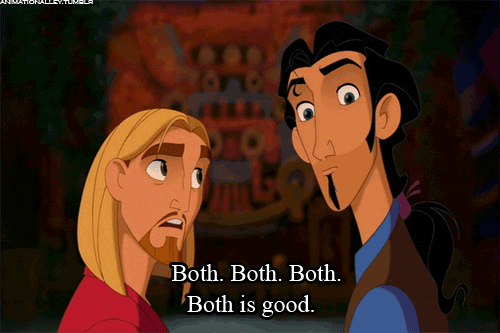 ...which I TOTALLY get. I want to see the whole set look blue too. It would be incredible. But I also want to not lose my job/bankrupt the company because of buying too much paint. I’m constantly reminded that theatre and other art forms have no vocabulary for what defines the end goal. Why are we expending energy and money? In every case study of engineering ever, the team is expending in order to reduce future cost or improve lead times. The argument is "we want to spend x amount of money to improve our process, which will reduce cost z in the long term and generate y more revenue." Great! That's a math problem. A long, complicated one with a good dose of heuristics to reach a final answer, but there's a goal that is defined numerically. Reduce z, generate y, and therefore define an optimal x. Got it. In theatre, the argument is "well we have to do this because ART." We don’t have a good, solid, always-applicable word for ART. We sometimes say "because the play wants it" or "because it will make this moment work." Pausing here to differentiate between theatre that has a goal of ART versus theatre that has a goal of monetary ROI. For some "theatre" companies, the equation is actually simple, because it's a game of gauging market demand for a really popular musical (or just doing Christmas Carol every year) and plugging that into an equation. Which cities should we tour Jersey Boys through that give it the most revenue while least cost? Kind of a cool operations research Transportation Network problem - but their goal is about ROI, not about ART. Which isn't a bad thing, but just isn't what I'm talking about right now. ANYWAY, we're talking about theatre that's creating new art, or art that hasn't been seen by or known to the market before. No demand data to base estimates of demand for tickets. And, regardless, the ROI isn't monetary or ticket-based. It's ART. Or something. So "we want to spend x amount of money in order to create more ART z and then long term make people have good feelings...y..." It's obvious the problem lies in the definition of z and y. They are often not MoPs (measures of performance) like they are in a typical engineering problem. So the math problem turns into something like...not a math problem: And maybe sometimes it just devolves into: ....and by this point I'm over in the corner thinking: Okay, I'm exaggerating. I actually think word clouds are a tool that can help lead us to this word that we need to be a quantifiable trait to replace ART. In fact, Counting New Beans, a study by Theatre Bay Area (thanks to C1 friends for pointing me towards said book), which starts to tackle this topic, uses word clouds as a research tool to find the vocabulary of defining what they call "intrinsic impact." The book is really unique, but doesn't end with any real answer. I am particularly interested in defining and quantifying the variable ART in the equation: minimize cost, maximize ART. So that people outside the weird circle of artists who totally get why the money needs to be spent ALSO understand that the money needs to be spent... and then give it to us.
I have no illusions whatsoever that I am the first person to define this problem. I am not even really a person who knows much about grants and funding of non-profits. These are just the things that occur to me as I study for a Manufacturing Systems exam and then go to look at how to justify purchases for a development workshop of a really cool theatrical event (I won't call it a play because it isn't just that) that creates no direct revenue generation, but creates incredibly cool impact. I made it through another summer of kids' theatre camps.  Yes friends, I am alive. And well. And I actually love theatre camp. I never went to theatre camp as a kid, so it's not one of those I AM GIVING BACK TO REPAY THOSE WHO GAVE ME- no. No, that is not it. I did like soccer and tennis and film camp and other things. But I do get an incredible joy out of watching kids succeed onstage. I just realized this will be a horribly sappy post with many a cliche. But come on! Cliches are born of unimaginative people trying to relay truth. And truthfully, when I stood backstage on the flyrail every night when the kids sing "NYC," only half of me wants to put in earplugs and the other half wants to applaud wildly because THEATRE. I guess it's just that when you're around kids they remind you how wildly uninhibited the art form can be. They will go for anything. They don't have 4 years of conservatory training and weird warm-ups and reservations about things and union rules. They just do the things that they want to do. And they sing their little hearts out on overworked material that is popular because it's catchy. Working in theatre with adults feels different. It's not wrong or bad. Just different. You can say there's more value to the art I produced working on How We Got On at Company One. I agree with you. That show did many great things and engaged with community on a level that made engagement more than just a buzz word. But I just can't shake how fun it is to work on kids' shows. And it pays too. So why the heck give that up? For credits of "grander artistic relevance" and professional environments? Okay yes, having Annie on your resume twice is not as impressive as having an Equity credit..but hey, I like Annie (sort of). I don't know. It's just something that strikes me as I finish this Summer. I know next Summer I can go back to TD'ing camp. Alternatively, I know I can go take on smaller professional credits in houses with big names, and get a lot of experience that will help me make more money someday. I've griped with fellow techies about having to do the educational stuff for the money it pays. But I guess what I'm thinking is I do like the educational stuff. Most of the time. And it does pay better than where I'm at elsewhere. I have to play the the hustle game, even in a field where I thought the game was just making the art. I know, I know I'm making this face at myself too.  Shut the f up Kevin, people are paying you to do theatre, you're the lucky one.
|
From the Fly Rail
My musings based off experiences I have in my theatre work. Or like my life. Archives
April 2015
Categories |
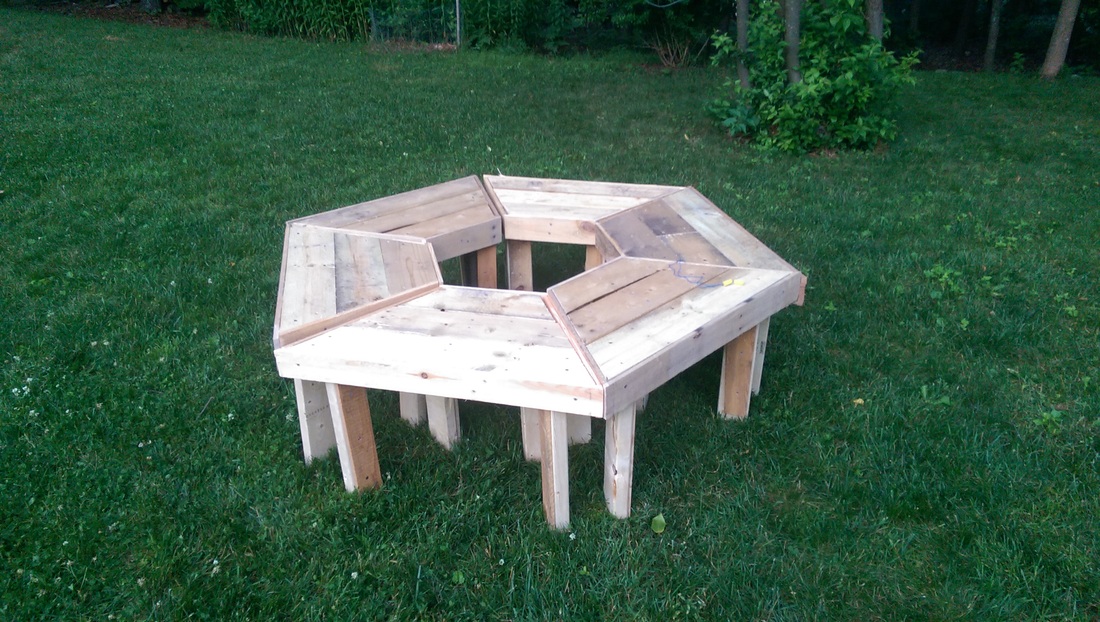
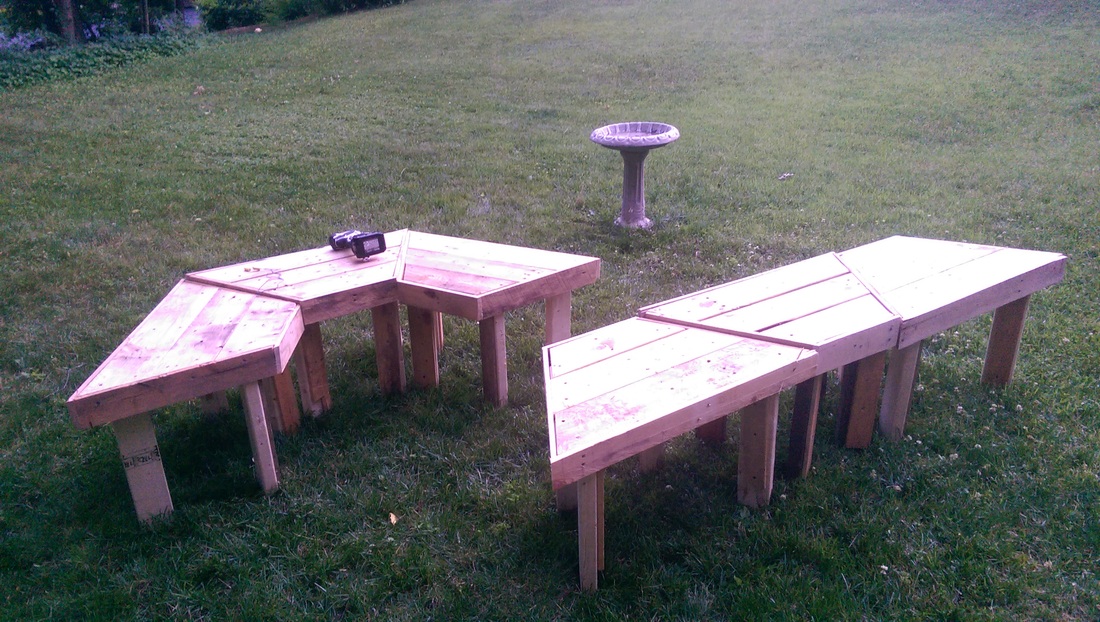


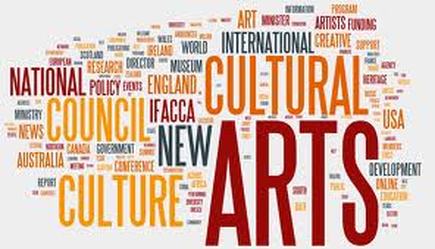
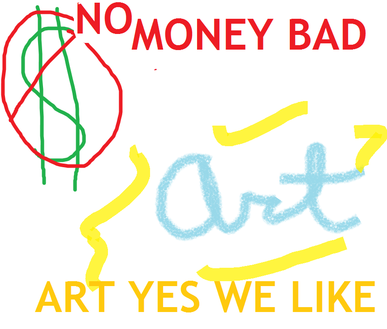

 RSS Feed
RSS Feed
